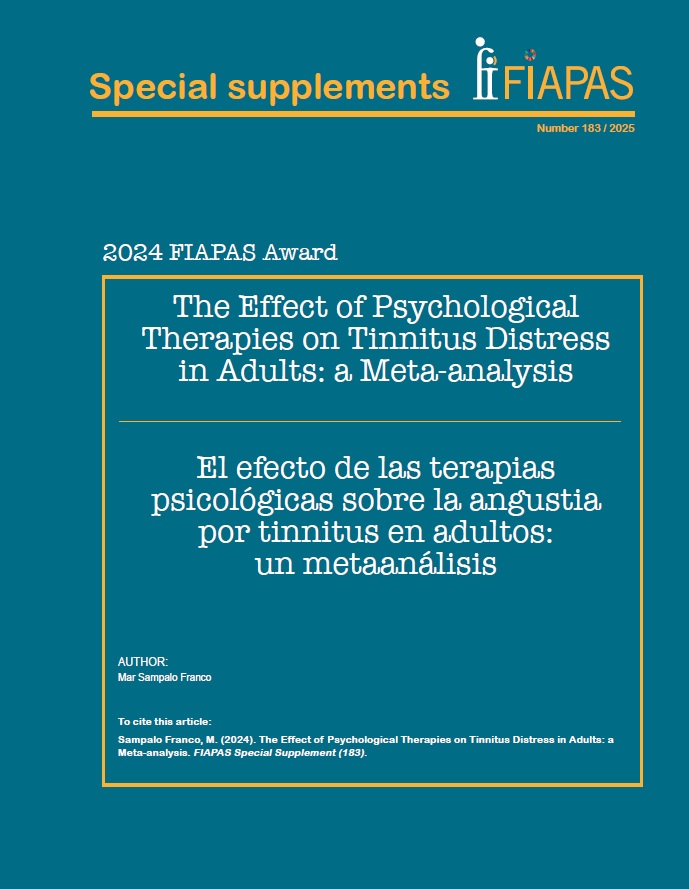This research is intended to document the effect of psychological therapies on distress caused by subjective tinnitus in adults. A systematic search was conducted on PubMed, Scopus and Web of Science, combining the following terms and synonyms: “tinnitus”, “distress”, “AL cognitive behavioural therapy”. The process was carried out following PRISMA guidelines by two independent reviewers. Inclusion criteria were established to select studies, the target population being adult patients with chronic subjective tinnitus, studies in which the inter-vention was psychological therapy and outcome measures focused on the evaluation of tinnitus distress and the functional ability of the subject. Study quality was assessed using the Scottish
Intercollegiate Guidelines Network system. A meta-analysis was conducted using Cohen’s d and including type of therapy as a modera-tor. Ten randomised controlled trials were ultimately selected.
Four articles reported a statistically significant decrease in tinnitus distress severity scores and six articles show significant improvement in functional ability to cope with tinnitus symptoms. Two articles had no statistically significant results in any of the outcome measures. The type-of-therapy moderator reveals no significant effect, so there appears to be no difference based on therapy type.
In conclusion, a decrease in tinnitus distress scores and improvement in functional ability were observed after the intervention, but the available evidence did not allow a clear conclusion to be drawn as to the most effective intervention modality.
FIAPAS 2024 Award Winner
Reference: Sampalo Franco, M. (2024): The effect of psychological therapies on tinnitus distress in adults: a meta-analysis. Special Supplement, No.183
©FIAPAS
